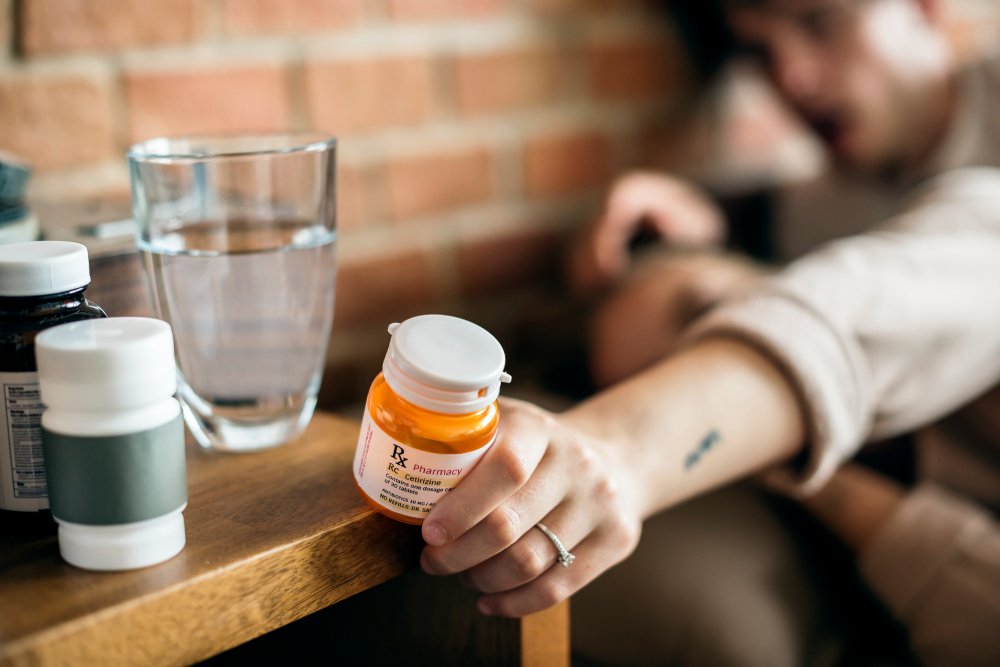
Drug therapy plays a significant role in managing urologic conditions, offering non-surgical treatment options for disorders like benign prostatic hyperplasia (BPH), overactive bladder, and certain types of urinary incontinence. Medication is often the first line of treatment for individuals seeking relief from symptoms without resorting to invasive procedures. Two prominent categories of drugs are alpha blockers and hormone suppressors, each working in unique ways to address urinary symptoms and improve quality of life.
Alpha blockers, such as Flomax and Uroxatral, are commonly prescribed to relax muscles in the bladder and prostate, making it easier to urinate. On the other hand, hormone suppressors, including Proscar and Avodart, help reduce the size of an enlarged prostate by decreasing testosterone’s effects on the prostate gland. Understanding how these medications work, along with their benefits and potential side effects, helps patients make informed decisions about their treatment.
For more information on drug therapies for urologic conditions, refer to the National Institute of Diabetes and Digestive and Kidney Diseases (NIDDK).
Types of Drug Therapy for Urologic Conditions
Drug therapy in urology typically involves two main classes of medications: alpha blockers and 5-alpha reductase inhibitors (hormone suppressors). Additionally, there are combination drugs that bring together both types to maximize symptom relief.
1. Alpha Blockers
Alpha blockers are medications that relax smooth muscle tissue in the bladder neck and prostate, making it easier for urine to pass. They work by blocking alpha-1 receptors in the bladder and prostate, which are responsible for muscle contractions. By inhibiting these receptors, alpha blockers reduce tension and facilitate urination, providing relief for conditions like BPH.
Common Alpha Blockers:
- Flomax (tamsulosin): Often prescribed for BPH, Flomax targets alpha-1 receptors in the prostate, relaxing the muscle tissue and making urination easier.
- Uroxatral (alfuzosin): Similar to Flomax, Uroxatral works by reducing urinary symptoms associated with BPH.
- Rapaflo (silodosin): Another alpha blocker used to relax the bladder neck and prostate muscles, improving urine flow.
Benefits of Alpha Blockers: Alpha blockers are particularly effective for men experiencing difficulty urinating due to an enlarged prostate. Benefits include:
- Immediate symptom relief (often within days of starting medication).
- Reduced need for straining during urination.
- Improved bladder emptying and decreased urinary frequency.
Side Effects of Alpha Blockers: While alpha blockers are generally well-tolerated, they may cause some side effects, including:
- Dizziness and Fatigue: These symptoms result from the medication’s effect on blood pressure, which may lead to postural hypotension.
- Retrograde Ejaculation: Some men may experience decreased semen volume due to semen entering the bladder instead of exiting through the urethra. This condition is harmless but may affect sexual satisfaction.
For a comprehensive overview of alpha blockers, visit the U.S. Food and Drug Administration (FDA).
2. Hormone Suppressors (5-Alpha Reductase Inhibitors)
5-alpha reductase inhibitors, commonly known as hormone suppressors, target the effects of testosterone on the prostate. These medications work by inhibiting the enzyme 5-alpha reductase, which converts testosterone into dihydrotestosterone (DHT), a hormone that contributes to prostate growth. By blocking DHT production, hormone suppressors gradually reduce prostate size, alleviating urinary symptoms over time.

Common 5-Alpha Reductase Inhibitors:
- Proscar (finasteride): Proscar is commonly prescribed for BPH and works by blocking the production of DHT, leading to a gradual decrease in prostate size.
- Avodart (dutasteride): Similar to Proscar, Avodart reduces DHT levels and is often used for long-term management of BPH.
Benefits of 5-Alpha Reductase Inhibitors: While alpha blockers provide immediate symptom relief, hormone suppressors offer gradual, long-lasting benefits by addressing the underlying cause of prostate enlargement.
- Reduced prostate size over time.
- Improved urinary flow and reduced frequency of urination.
- Lowered risk of acute urinary retention and need for surgery.
Side Effects of 5-Alpha Reductase Inhibitors: Hormone suppressors may cause several side effects, including:
- Reduced Ejaculation Volume: Some men may experience a decrease in semen volume due to the hormonal effects of these medications.
- Decreased Libido: Hormone suppressors can lower testosterone levels, potentially reducing sexual desire.
- Lower PSA Levels: These drugs can reduce prostate-specific antigen (PSA) levels by approximately 50%, which may mask signs of prostate cancer. Regular monitoring of PSA levels is recommended.
For additional details on hormone suppressors and their effects, visit the National Institutes of Health (NIH).
3. Combination Therapy
Combination therapy involves using both an alpha blocker and a 5-alpha reductase inhibitor to achieve a comprehensive treatment approach for BPH. Jalyn, a medication combining dutasteride (Avodart) and tamsulosin (Flomax), is commonly prescribed for men with moderate to severe BPH. Combination therapy has been shown to be more effective in reducing symptoms than using either medication alone, as it provides both immediate symptom relief and long-term reduction in prostate size.
Benefits of Combination Therapy:
- Faster and more substantial relief from urinary symptoms.
- Improved bladder emptying and reduced need for frequent urination.
- Lower risk of progression of BPH and reduced likelihood of needing surgery.
Side Effects of Combination Therapy: The side effects of combination therapy may include those associated with both alpha blockers and hormone suppressors, such as dizziness, fatigue, decreased ejaculation volume, and reduced libido. Patients should discuss the risks and benefits of combination therapy with their healthcare provider to determine if it is the best option for their condition.
Conditions Treated with Drug Therapy
Drug therapy is commonly used to treat several urologic conditions, particularly those involving prostate enlargement and urinary symptoms.
1. Benign Prostatic Hyperplasia (BPH)
BPH is a non-cancerous enlargement of the prostate gland, which can obstruct the flow of urine from the bladder. As the prostate enlarges, it presses against the urethra, leading to urinary symptoms such as difficulty starting urination, weak stream, and frequent urination, especially at night.
Drug therapy, particularly with alpha blockers and hormone suppressors, is a first-line treatment for BPH. Alpha blockers provide quick relief by relaxing the muscles around the prostate and bladder neck, while hormone suppressors reduce the prostate’s size over time.
For more information on BPH and treatment options, refer to the National Institute on Aging (NIA).
2. Overactive Bladder (OAB)
Overactive bladder (OAB) is characterized by a frequent and urgent need to urinate, which can be challenging to control. While anticholinergic medications and beta-3 agonists are the primary treatments for OAB, alpha blockers may be prescribed for men with OAB and concurrent BPH to alleviate urinary symptoms by relaxing the bladder neck muscles.
3. Prostatitis
Prostatitis is an inflammation of the prostate gland, often accompanied by pain, urinary difficulties, and sexual dysfunction. While antibiotics are typically used for bacterial prostatitis, alpha blockers may be prescribed to relax the bladder neck and improve urinary symptoms.
Side Effects and Considerations in Drug Therapy
While drug therapy offers effective relief for urologic symptoms, understanding potential side effects and considerations is essential for long-term success.
- Regular Monitoring: Patients on hormone suppressors need regular PSA tests to monitor prostate health, as these medications lower PSA levels and can mask signs of prostate cancer.
- Impact on Sexual Health: Both alpha blockers and hormone suppressors can affect sexual function, including reduced libido and changes in ejaculation. Discussing these effects with a healthcare provider can help patients weigh the benefits and potential trade-offs of drug therapy.
- Dizziness and Blood Pressure Changes: Alpha blockers can cause postural hypotension (a drop in blood pressure upon standing), leading to dizziness or fainting. Patients are advised to rise slowly from sitting or lying positions to avoid dizziness.
- Medication Interactions: Certain drugs may interact with alpha blockers or hormone suppressors. It is essential to inform the healthcare provider of all medications, supplements, and herbal products being taken to prevent adverse interactions.
Alternatives to Drug Therapy
While drug therapy is effective for many, some patients may prefer or require alternative treatments:
- Lifestyle Modifications: Weight loss, dietary changes, and increased physical activity can improve urinary symptoms, particularly in men with mild BPH.
- Minimally Invasive Procedures: Procedures like transurethral resection of the prostate (TURP) and laser therapy offer long-term relief for BPH symptoms and may be suitable for patients who do not respond well to medications.
- Surgical Options: In cases where drug therapy and minimally invasive options are ineffective, surgery may be considered to remove or reduce prostate tissue.
For more information on treatment options beyond medication, visit the National Cancer Institute (NCI).
Conclusion
Drug therapy, including alpha blockers and hormone suppressors, provides effective relief for many urologic conditions, especially BPH. These medications work by relaxing the prostate and bladder neck muscles or reducing the size of the prostate, helping to alleviate symptoms and improve quality of life. Understanding the potential side effects, benefits, and alternative options allows patients to make informed decisions about their treatment.
By working closely with healthcare providers, individuals with urinary symptoms can find a treatment approach that aligns with their needs and lifestyle. Regular monitoring and open communication with a healthcare provider ensure that the therapy remains effective and well-tolerated over time.
For further information on drug therapy for urologic conditions and prostate health, refer to the National Institutes of Health (NIH).



